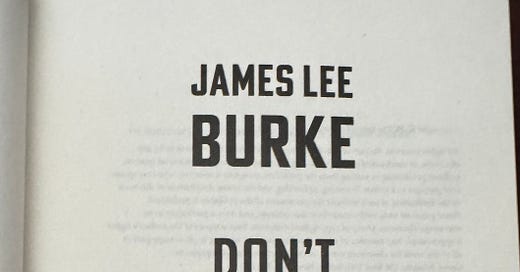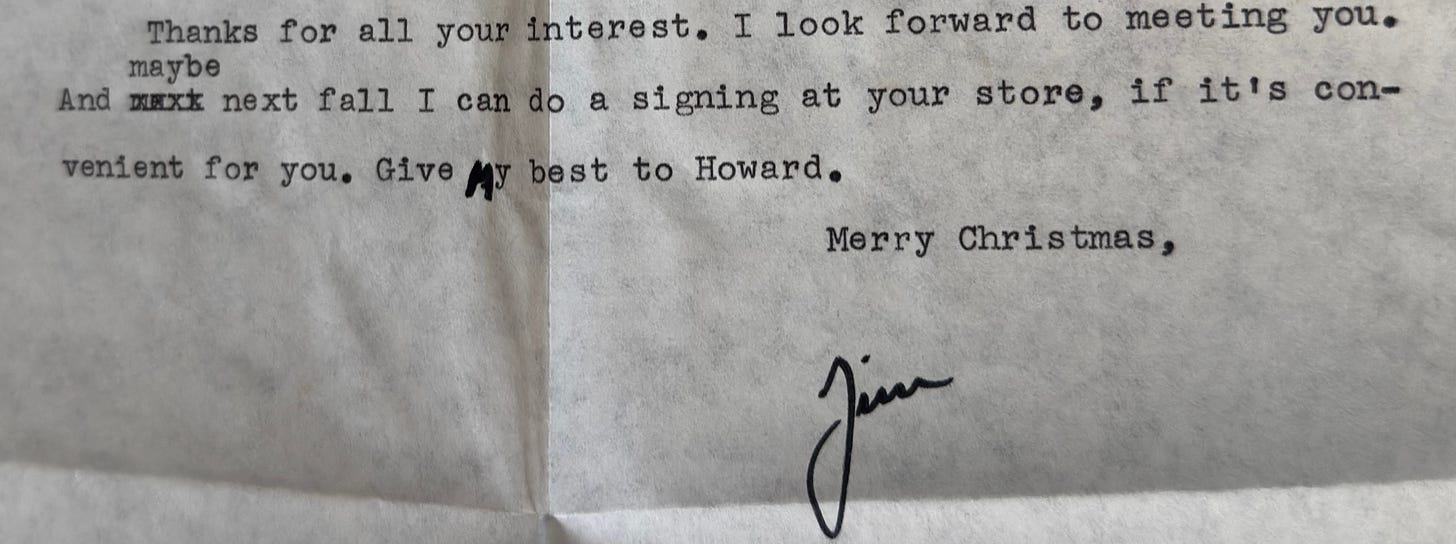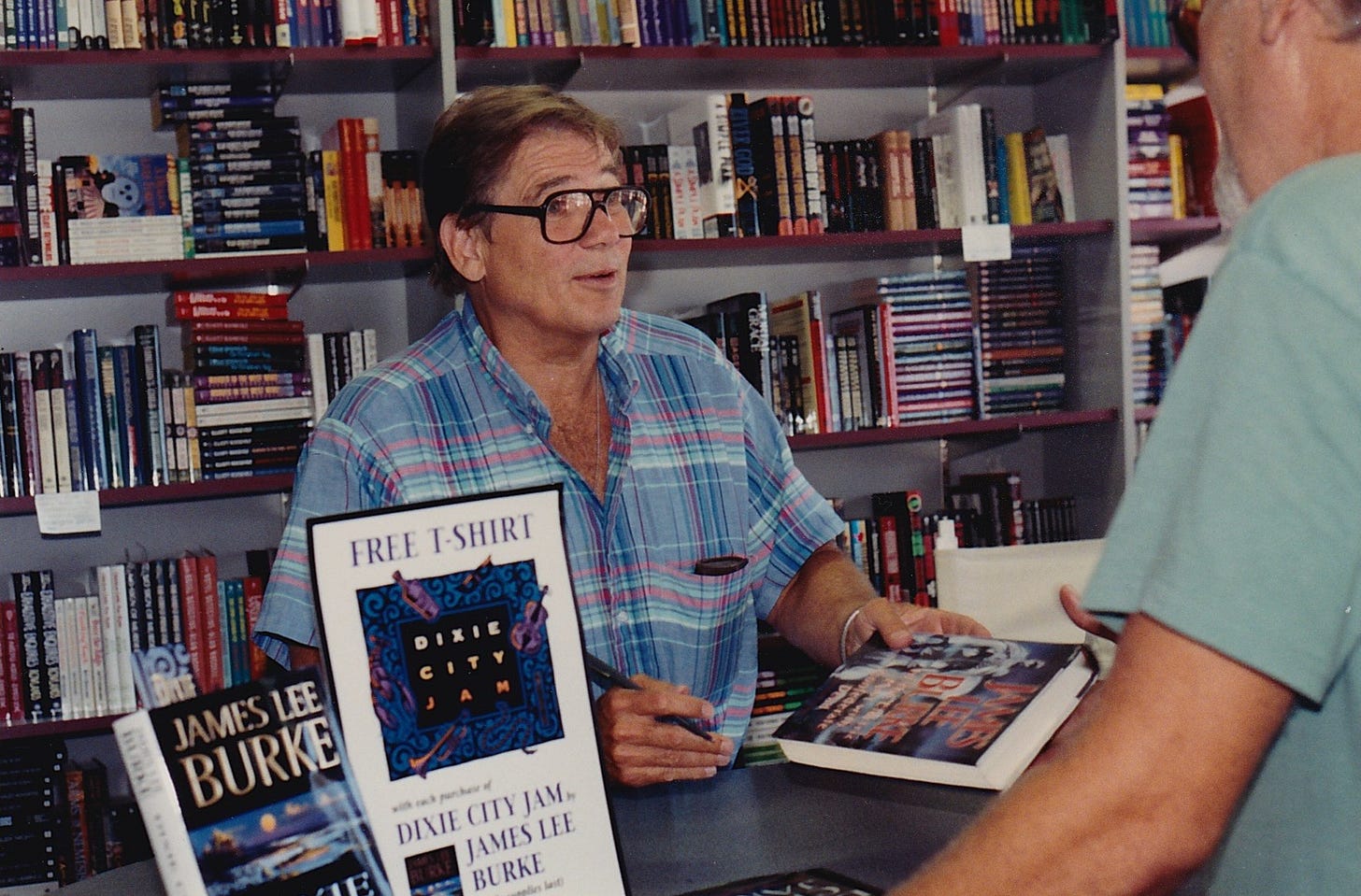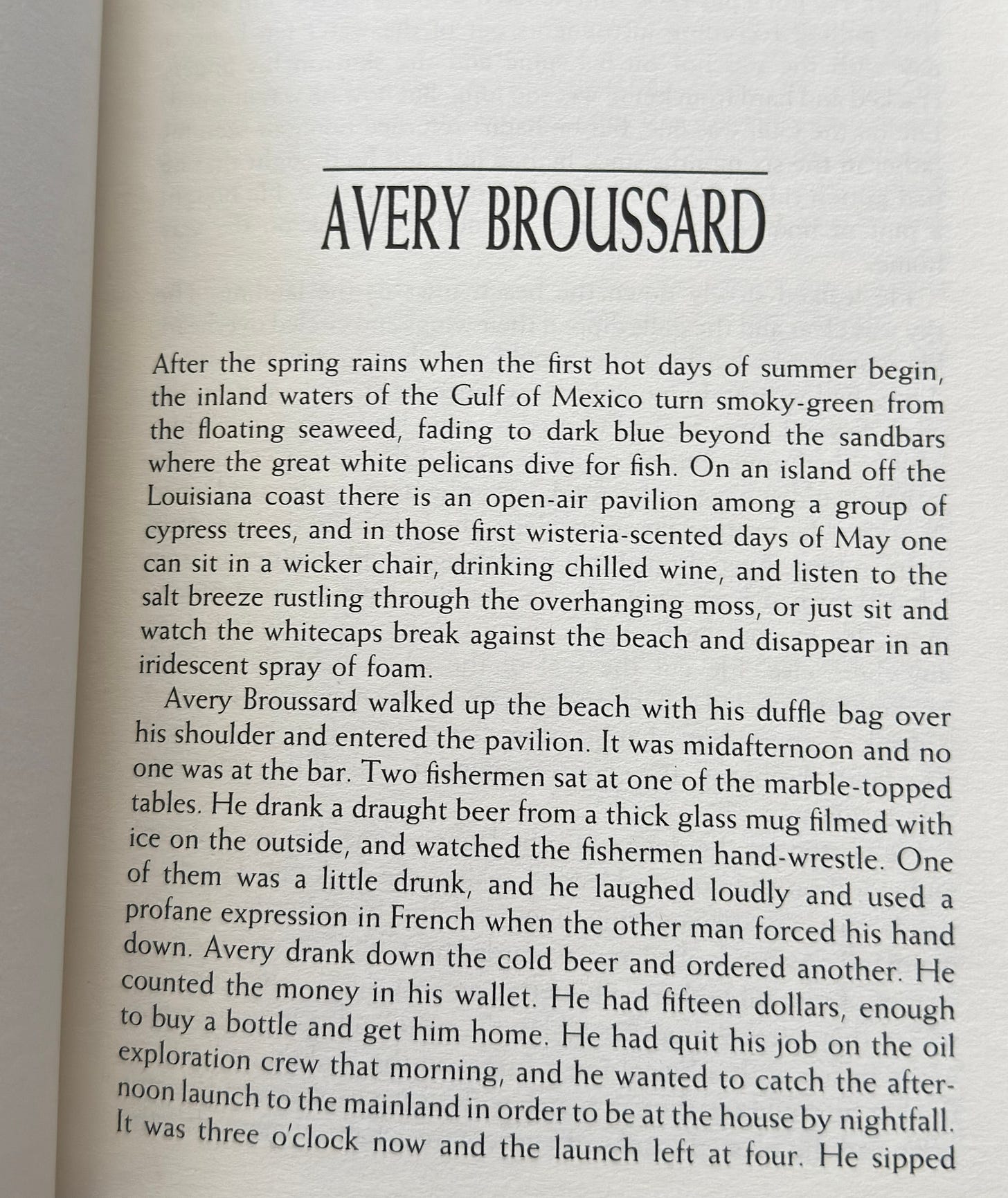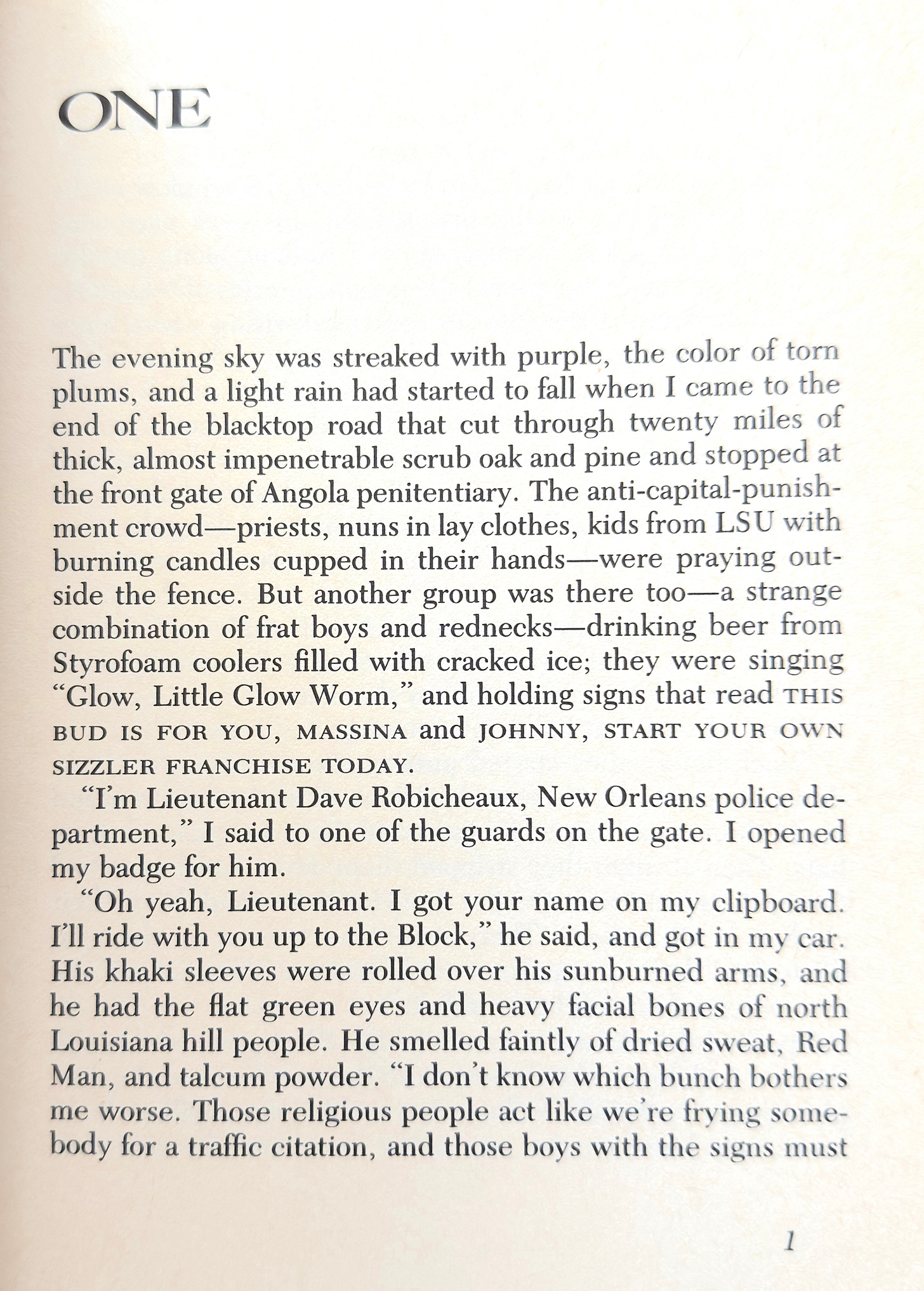Honoring James Lee Burke on this Father's Day
At my age, the people I’ve respected and appreciated for most of my life are, necessarily, somewhat older than me and the chance of them passing on increases with every year. Twice this month, I’ve written here about musicians who I’ve interacted with in person, and of whom I’ve been a fan for decades, but who have recently died. I probably wouldn’t have had any way to reach out to them to share my thoughts, if they hadn’t died, but at least there was the remote possibility that they’d have been able to see the pieces and know that I honored and appreciated them.
So, I’m sorry that I didn’t write those until they passed. I’m not making that mistake this time—I’m writing about my friend James Lee Burke. He’s alive and kicking and I hope he will be for a long time to come. I can tell you that he remains the incredibly talented writer he has been from the start. He’s got a brilliant intellect and a heart and soul that are revealed with every word he writes or speaks.
The immediate trigger for writing this is my receipt this week of his latest novel, Don’t Forget Me, Little Bessie. Because Jim isn’t touring much these days, I ordered my copy from Fact & Fiction, an independent bookstore in Missoula, MT, where Jim and his wife Pearl live. The store gets each new release signed by Jim. Here’s our copy.
I first met Jim on January 18, 1990, at a great mystery bookstore in Orange, CA called Book Carnival (run, at the time, by Ed and Pat Thomas, two wonderful people). I was managing Hunter’s Books in La Jolla at the time, but I made the trip up because I’d read The Neon Rain, the first book in Jim’s Dave Robicheaux fantastic, Edgar Award-winning series. That book convinced me that he was already one of the best crime-fiction writers in the business, and that the series was going to be exceptional.
I was right on both counts.
I wrote to Jim, and he replied, letting me know about the Book Carnival event. This was when he and Pearl still living in Wichita, KS.
They left Wichita shortly thereafter, and since then the Burkes have split their time between New Iberia, LA and Missoula—two decidedly different places in terms of geography, atmosphere, and populace, but also two of the most beautiful spots in the United States.
For his next book, Heaven’s Prisoners, Jim and Pearl both came to my store for an event. On their way home, Pearl sent me a kind note, which of course I still have. After that, most of Jim’s book tours have included southern California, so he visited Hunter’s Books, then the new specialty bookstore, Mysterious Galaxy, of which I was a co-founder.
Sometime in the early nineties I was able to visit Jim and Pearl’s home near Missoula. It was a lovely spot, with the Bitterroot Mountains looming in the background. On the day I visited, the Burkes had watched a deer giving birth right outside one of the big windows of their beautiful home.
Jim’s literary genius has been on display since the publication of his first novel, Half of Paradise, in 1965. The New York Times gave it a glowing review that concluded with: “No reservations alter the important things about the book: it is an exciting piece of writing and a solid debut for a writer to be taken absolutely seriously.”
That first page shows the strength of his writing, even at the start of his career. He writes sympathetically about good characters and bad, always able to access the humanity of each—or the lack thereof, in the depictions of some of the truly evil people his protagonists face. But even those villains have reasons for what they do, twisted though they might be. The choice between good, evil, and checked out entirely is always present in his books. And as in real life, that choice isn’t an easy one, and the different states of being frequently bleed into one another . Reading Jim is an exercise in exploring and understanding the human race in all its faded glory and depths of depravity.
There are good guys in his books—in the Robicheaux series in particular, the “good” characters include Dave Robicheaux, Clete Purcel, and Helen Soileau. Each one has his or her own cross to bear. They each want to do “the right thing,” but that’s not always easy to identify and even harder to achieve. Dave’s introduction on the first page of The Neon Rain showcases Jim’s skill at starting off with his protagonist already facing a moral predicament of sorts—for a man who values human life, is the death penalty a force for good or evil? Also evident here are Jim’s powers of observation and description.
I don’t think it comes as a surprise to avid readers of James Lee Burke that the author is a devoted Catholic whose faith is expressed in the best of ways—concern for those who have the least, an urge to help where he can, and a distaste for those who have the most and, in their rapacious greed, scramble for more no matter who’s hurt in the process.
Jim is one of the finest writers the mystery field has ever known—one of the best American writers in any field, in my opinion. More important than that is that he is one of the finest men I have ever known, the ultimate “noble mon," He’s forever on the side of the angels—like his fictional counterpart Robicheaux, he has fought to lift up those who society has ignored or pushed down. He opens our eyes to the ways evil exists in the world, but also to the ways in which we can try to counter it.
I’m proud to call him a friend.
